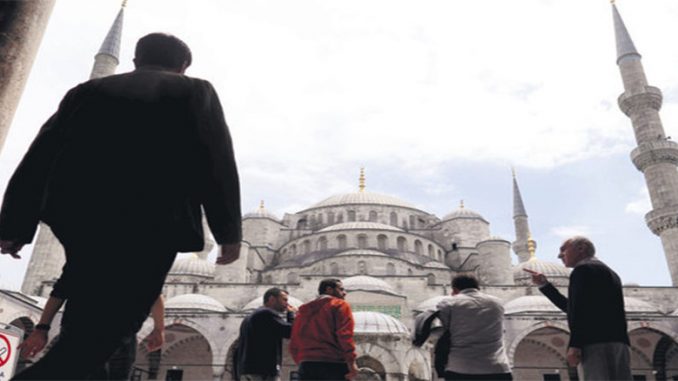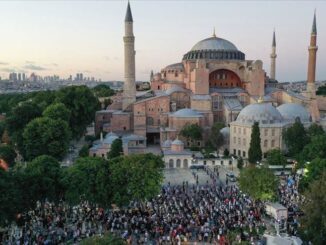
 BY: İBRAHIM KALIN*
BY: İBRAHIM KALIN*
Today is the beginning of the holy month of Ramadan when Muslims fast from dawn to sunset as an act of worship and submission. In a world that has become immersed in itself and idealized individual interest and pleasure, fasting may seem a quaint action and even an extreme measure to the modern person. Some may dismiss it as irrational. But quick reflection reveals that fasting is an act that is grounded in the mind, soul and spirit more than the body and helps us bring out the best of our humanity.
Fasting is an act of intelligence and will. One would not fast if one is not convinced of its religious purpose. One has to have enough knowledge and proper judgment to decide to fast. This is a fundamental principle of Islamic law: religious duties do not apply to the insane. Fasting involves the mind in the sense that we are urged to reflect upon ourselves and the world during fasting. Staying away from food, drinking and/or sexual intercourse while fasting is essentially not an act of the body but of the mind and the will.
Fasting is also an act of the will whereby we use our reason and volition to stay away from worldly pleasures to reach a higher state of being. We cannot do it without convincing ourselves of its truth and without disciplining our minds and bodies.
But what is more essential is fasting with soul and spirit. These two terms have mostly lost their original meaning in the post-Enlightenment consumerist societies. In some cases, we no longer even use them to explain the human state. But for thousands of years, human beings were seen as composed of not only the mind and the body but also the soul and the spirit. Reducing the complex human nature to the “psyche,” another favorite term of modernity, and dismissing its other states as unscientific and/or theological comes at a cost that we hardly realize. Psychologizing the human soul and spirit ends up dwarfing the human state.
In the Islamic tradition, the soul (nafs) refers to the human person as a whole. It has different degrees ranging from spiritual perfection and contentment to moral decadence and destruction. It may make us truly human beings or worse than the beasts. It can become a mirror reflecting the beauty of God’s creation or a swamp that drowns us in darkness. It is this multidimensional nature of the soul that requires our attention during fasting as well. Reducing the soul to subliminal desires is the same as reducing the human being to bones and flesh.
We have a similar problem with the word spirit (ruh) today. We hardly use the term in its original metaphysical and moral sense. Spirit refers to the divine substance that God breathed to create the human person. It links our earthly existence to the divine. When nourished properly, it elevates us to the level of angels and even beyond. If ignored and darkened, it turns humans into monsters.
With these caveats in mind, we can say that one reaches a true state of spiritual refinement when fasting not only with the body but also with the soul and the spirit. Controlling oneself not to indulge in physical pleasures for a certain period of time is an important act of volition. But it is also an exercise in spiritual wayfaring. By getting less from the material world, we gain more from the spiritual domain.
But since Islam urges us to adopt a middle path in all things, there is no permission to go to the extremes of self-denial and self-deprivation. After fasting from dawn to sunset, we are invited to cherish our bodily and spiritual sacrifice with a meal that serves as a reward of the day. But this is only to get the necessary nourishment to take care of our bodies. What is essential is to continue the spiritual wayfaring at night with prayers, invocation and contemplation. As we feed our soul and spirit with the right kind of nourishment, we become fuller and richer.
We should also remember that it is in the month of Ramadan that the Quran, Islam’s holy book, began to be revealed. It is in the Quran that we find the most illuminating guidelines for a healthy spiritual life. The Quran urges all human beings to use their intelligence and will to lead a moral and virtuous life. It describes the states of the soul and the spirit with striking clarity. It says that we are humans to the extent to which we seek to overcome the flesh and enrich the spirit without ever going to the extremes and denying the totality of the human state.
As we begin the month of Ramadan, let’s hope and pray that our fasting and prayers reach the depths of our souls and spirits.
*Ibrahim Kalin is the spokesperson for the Turkish presidency.
(Published in Daily Sabah Turkish newspaper on Saturday, May 27, 2017)



